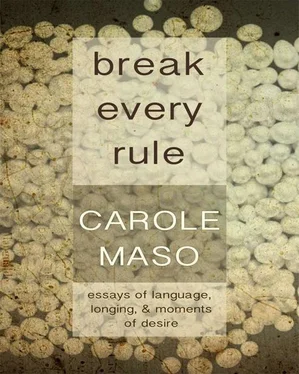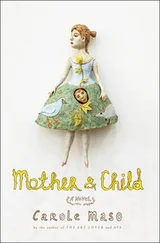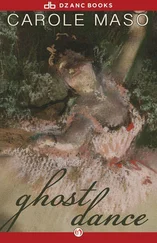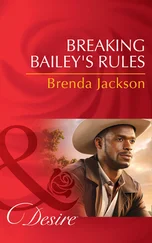She accepted her fame as a tribute, long on the way but due, and enjoyed it thoroughly. Only once, in Paris — and indeed the last time I saw her — did the recognition of a cameraman displease her, for he waylaid her just as we were entering Rumpelmayer’s patisserie. In order to satisfy the need for cake, and the photographer’s wish, she was photographed by him, through the plate-glass window, eating the chosen one.
Her meals — continued
Melon and prosciutto, artichoke risotto, grilled sausages, another tiramisu. Ravioli with truffles, fish stew, panecotta, and so forth.
Please another Piero della Francesca.
And so forth
I am not striving at all but only gradually growing and becoming steadily more aware of the way things can be felt and known in words, and perhaps if I feel them and know them myself in the new ways it is enough, and if I know fully enough there will be a note of sureness and confidence that will make others know too. And when one has discovered and evolved a new form it is not the form but the fact that you are the form that is important.
I find you young writers worrying about losing your integrity and it is well you should, but a man who really loses his integrity does not know that it is gone, and nobody can wrest it from you if you really have it.
Hemingway you have a small income; you will not starve; you can work without worry and you can grow and keep this thing and it will grow with you. But he did not wish to grow that way, he wished to grow violently.
Everybody’s life is full of stories; your life is full of stories; my life is full of stories. They are very occupying, but they are not very interesting. What is interesting is the way everyone tells their stories.
Thornton Wilder: The fundamental occupation of Miss Stein’s life was not the work of art but the shaping of a theory of knowledge, a theory of time, and a theory of the passions…the formalization of a metaphysics.
Mina Loy: She swept the literary circus clear for future performances.
For a very long time everybody refuses and then almost without a pause almost everybody accepts. In the history of the refused in the arts and literature the rapidity of the change is always startling.
Wassily Kandinsky, 1910: The apt use of a word (in its poetical sense), its repetition, twice, three times, or even more frequently, according to the need of the poem, will not only tend to intensify the internal structure but also bring out unsuspected spiritual properties in the word itself. Further, frequent repetition of a word (a favorite game of children, forgotten in later life) deprives the word of its external reference. Similarly, the symbolic reference of a designated object tends to be forgotten and only the sound is retained. We hear the pure sound, unconsciously perhaps, in relation to the concrete or immaterial object. But in the latter case pure sound exercises a direct impression on the soul. The soul attains to an objectless vibration, even more complicated, I might say more transcendent, than the reverberations released by the sound of a bell, a stringed instrument or a fallen board. In this direction lie the great possibilities for literature of the future.
Martin Ryerson: If you realized that she worked insistently, every day, to be published the first time by a real publisher, publishing house after she was sixty. But I wonder who will do that, who will have the insistence, you understand the obsession, the surety the purity of insistence to do that. No concessions. She used to tell me, Don’t you ever dare to make a concession. Then one walks down, down, down. There’s no end of walking down.
Acts
Curtain
Characters
Characters
Curtain
Acts
There is no one and one
Nobody has met anyone.
Curtain Can Come.
(for Zenka Bartek 1912–1997)
Curtain.
And this is
what bliss
is and
this and
this is
what
bliss is.
very much
White lights lead to red lights which indicate the exit.
Spaghetti arrabiata, spaghetti bolognese, polenta, grilled pork, escarole, spinach, ricotta, tiramisu…
Saint Francis hundreds of times, Saint Sebastian certainly,
Saint Simon, Saint Clare is a big one, the head of Saint
Catherine, Saint Francis is a very big one, Saint Peter and Saint
John of course. Saint Bliss.
Preparing a novel prepared to stay.
And paving the way.
Thank you very much.
Chapter Rose
Even then I was loving you
very much.
End in singing.
Who goes away tonight. They all do. And so they do.
WHAT IS THE LIMIT OF SNOW?
NOT A NOTE OF MUSIC in his parent’s house. An apprenticeship in silence.
The Fourth Violin Concerto (1984) has a cadenza which is to be seriously mimed by the soloist without making a sound. A tribute to the house of his birth.
He wore those fingerless gloves even as a toddler, before he became anything like a musical prodigy.
He remains to this day (15 October 1999) almost totally unknown outside of musical circles.
The dissonant Soviet avant-garde persona he loved to put on at parties. Richter, born in that less-than-restless New Jersey suburb, Upper Montclair, to American parents and given the unlikely name: Gustave Richter.
Once in high school Richter and I sitting on the curb, happily singing Frank Zappa songs. Call any Vegetable, Saint Alphonzo’s Pancake Breakfast , etc.
Celebrating Edgar Varèse Day. We were despised by the other students. Of course.
Of course we were.
Density 21.5 performed in its entirety.
Composed for his graduation from the Julliard School of Music: Uncle Pehrs’s Life in Music . 1978.
Richter walking through snow and Schoenberg.
Richter walking through the kind of snow you just don’t see anymore. Into music.
BACH (B flat) The letters of Bach’s name appearing as a motif in much of his work.
“History is plundered, irony is rampant, pastiche becomes the only coherence.”
The critic says, “He takes the style that mocks the very idea of genius and turns it into an affirmation of genius.”
He is a master of modern melancholy and sarcasm. Yes he is.
Irony is a temptation, never a solution.
“Everything which causes disharmony in the world, all that is monstrous, inexplicable, and dreadful is an intrinsic part of the world’s order. Disharmony and cacophony, ‘the world’s evil,’ is knit into what is harmonious and beautiful.” Richter in an interview last year.
His last piece: For the Two Million Armenian Martyrs .
What Richter loved:
the limits of perpetual snow.
Uncle Pehrs.
What concerned him was music, purely music and nothing else, yet there he is adjusting the shutter.
Hello!
Jean Sibelius’s Uncle Pehrs hanging above his desk to this day.
A birthday party in Spain, that sort of documentation: I, tipsy hope to find him in the frame, champagne. The neck cut off with a knife. Richter grinning.
No one is commissioning Richter for anything. Money is, as always, a problem. Richter’s assistant is despondent, etc. We walk around Central Park. Richter doing a lot of shrugging.
“…the profound and the absurd…is the tangible personal struggle that appears embedded in each piece.” That’s my friend Richter all right.
Richter in motion — where are you going?
The little Super 8 I bought him as a gift. He aims it in every which direction. We both lament that we do not have the temperament to participate in what is indisputably the most important art form of the century. You’ve got to admit…
It doesn’t stop him from trying…in his spare time. Because, as he likes to explain to me, composers have a lot of spare time.
Читать дальше












